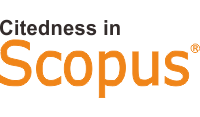KEMITRAAN USAHA BERBASIS MUSYARAKAH PADA PETERNAK AYAM BROILER, APAKAH SESUAI DENGAN PRINSIP SYARIAH?
DOI:
https://doi.org/10.46870/milkiyah.v1i2.234Keywords:
Musyarakah, Finance, Broiler Breeder, CompanyAbstract
The emergence of cooperation between breeders and companies encouraged this research to be carried out. They applied the musyarakah contract to a broiler breeder in Labakkang District, Pangkep regency. The purpose of this study is to reveal the implementation of the musyarakah agreement between the company and the farmer based on DSN-MUI No.15/DSN-MUI/IX/2000. This type of research used a qualitative type, with a case study approach. The location of the study was conducted in Labakkang District, Pangkep regency, Indonesia. The subjects of this study were breeders. Data were collected using observation, interviews and documentation. The results of this study show that the company has determined the price per head at the beginning of the contract, and during the harvest period, the breeders will sell the broiler to the company according to the contract price agreed at the beginning, When the price rises in the market, they will still sell the broiler to the company based on the previously agreed price, likewise, if the price falls in the market, they will still sell broilers to the company based on the previously agreed price. Furthermore, the musyarakah agreement carried out by breeders and PT. Japfa Ciomas Adisatwa is not fully implemented. Based on DSN Fatwa No.08/ DSN-MUI / IV / 2000 concerning financing with a musyarakah contract, a conformity of 78.58% and a mismatch of 21.42% was obtained, especially in the part of the contract object regarding profits.
REFERENCES
Baits, Nur Ammi. (2020). Pengantar Kaidah Fiqih Kubro dan Penerapannya Dalam Fiqh Muamalah, Jogjakarta: Pustaka Muamalah Jogja.
Chan, F., Kurniawan, A. R., Kalila, S., Amalia, F., Apriliani, D., & Herdana, S. V. (2019). The Impact of Bullying on the Confidence of Elementary School student. Jurnal Pendas Mahakam, 4(2), 152–157.
DSN-MUI. (2000). Fatwa Dewan Syari’ah Nasional Tentang Pembiayaan Musyarakah. Himpunan Fatwa DSN MUI, 5. http://mui.or.id/wp-content/uploads/files/fatwa/07-Mudharabah.pdf
Gojali, D. (2019). Implementasi Hukum Ekonomi Syariah Pada Lembaga Keuangan Syariah. Jurnal Ilmu Akuntansi Dan Bisnis Syariah, 1(2), 130–144.
Meleong Lexy J. (2006). Metodologi Penelitian kualitatif, Edisi Revisi, Bandung: PT. Rosda Karya,
Muhajir Neong, (2001). Metodologi Penelitian Kualitatif, Yogyakarta: Rake Serasin.
Naf’an. (2014). Pembiayaan Musyarakah dan Mudharabah (1st ed.). Graha Ilmu.
Rasjid Solaeman, (2007). Fiqih Islam, Bandung, Sinar Baru Algesindo,
Sugiyono. (2018). Metode Penelitian Kombinasi (Mixed Methods) (10th ed.). Alfabeta.
Tehedi, & Ervino. (2021). Praktik Bagi Hasil Ternak Sapi. Borneo: Journal of Islamic Studies, 1(2), 42–54.
Umam, K. (2016). Perbankan Syariah: Dasar-Dasar dan Dinamika Perkembangannya (1st ed.). Rajawali.
Downloads
Published
How to Cite
Issue
Section
License
Copyright (c) 2022 Milkiyah: Jurnal Hukum Ekonomi Syariah

This work is licensed under a Creative Commons Attribution-NonCommercial 4.0 International License.

















